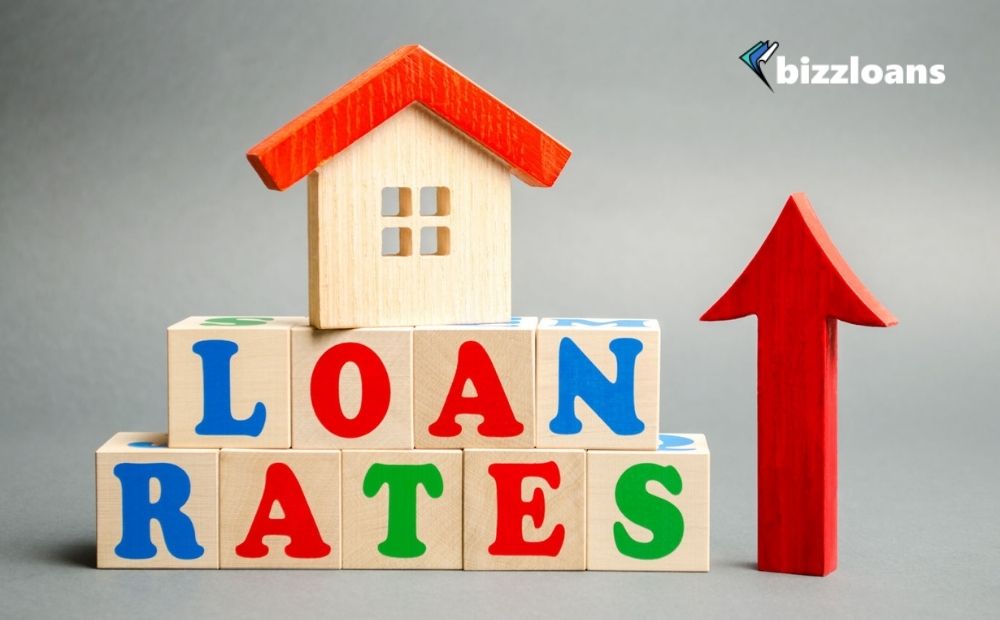It is quite probable that you will require funding to fuel your operations, whether you are just starting or expanding your business. Business owners resort to small business loans for funding without sacrificing their equity or ownership in the company. Small business loans help business owners get their businesses off the ground while maintaining control.
A small business loan is a form of lending designed for smaller firms. In most cases, you must have been investing for at least six months and have a monthly revenue of $5,000 or more. Small business investments of up to $150,000 are typically authorized and funded the very same day.
There are more small business financing choices to explore beyond the traditional bank-provided business loans. There are no constraints on using a business loan for any legitimate company purpose. A lending facility of some kind is used by more than half of Australian small enterprises. To secure a business loan nowadays, you do not need to put up any assets or insurance.
In this article, you will learn about the various sorts of funding available to a variety of enterprises.

Unsecured Business Loans
Unsecured business loans can be used to fund any form of business necessity. The Unsecured Business Loan is short-term lending that can last anywhere between 3 to 24 months, depending on the lender. You will pay back the loan plus interest periodically. To obtain a loan, no collateral is necessary. But because unsecured loans provide a greater risk to lenders than secured loans, rates of interest are frequently higher. Depending on the condition of your credit rating, you will likely be paying more for an unsecured loan in the long run.
Unsecured loans are open to all types of lenders and do not necessitate the borrower to have an asset to cover the loan. It should not be too difficult to receive an unsecured loan if you have a strong credit score. Working capital loans and cash flow loans are examples of unsecured loans for micro-businesses.
| AMOUNT | TERMS | INTEREST RATE |
| $5K – $500K | 3 – 24 months | High |
Secured Business Loans
A Secured Business Loan is when a company applies for a brief business loan while using their properties or another obtainable asset as collateral. Collateral or security refers to the assets you guarantee in exchange for a loan. As a kind of insurance, you can use your home, commercial real estate, cars, or machines.
This is usually obtained through a bank and involves the use of private possessions (typically your house) as a guarantee against the whole loan amount. Since this loan is secured by something you own, it is also known as an asset-backed loan. This implies that if you loan a specific sum of money and cannot pay it back, you could lose your personal belongings.
Secured Business Loans are considered less dangerous than unsecured loans, which involve a greater degree of risk for the lenders, and hence are offered at lower interest rates. In the case of secured business loans, it is also easier to recover liabilities by liquidating the pledged collateral.
| AMOUNT | TERMS | INTEREST RATE |
| $5K – $500K | 3 – 60 months | From 9.9% P.A |
Equipment Finance
Equipment finance is a type of fixed-term credit that you can use to buy machines and tools for your company. The Lender will own the collateral for the length of the agreement. Because loaning machines or office equipment can save on startup costs, this is an alternative that several small firms find quite handy. Rather than purchasing a large number of assets all at once, you will be capable of spreading the expenditure and evaluate your revenue before making such a large investment.
Equipment loans have always been famous in Australia, partially due to a large number of companies in the building industry, but also due to the high price of industrial vehicles concerning the regular cash flow of small enterprises.
There are a handful of drawbacks to taking into account when deciding on asset finance for your business. If you wish to break out of a long-term contract earlier, it might be very difficult. If the loan length is short than 5 to 7 years, you would not be able to claim capital allowances on the asset.
| AMOUNT | TERMS | INTEREST RATE |
| $5K – $2M | 1- 5 years | 6 – 15% |
Invoice Finance

Another alternative is invoice financing, which can be as lengthy or as short as you choose. It is possible to release funds from your overdue invoices using this strategy. When you trade your invoices to a lender, this is referred to as “factoring.” The lender will send you up to 80% of the billed amount right away, and you will be responsible for handling payments. It can be as long or as short as you choose. It is possible to release funds from your overdue invoices using this strategy.
| AMOUNT | TERMS | INTEREST RATE |
| $5K – $100K | 3 – 180 days | 3 – 5% |
Line of Credit
You are given an agreed-upon amount that you can use whenever you need it. With a line of credit, you usually only pay interest on the money you have pulled down and not the entire capacity.
A line of credit can be used for almost anything, including vacations, home improvements, and even a new vehicle. The best part is that you only pay interest on the money you have loaned, not on the whole credit limit. You can usually get your cash quickly by transferring it to a transaction account through internet banking and then paying for things with direct payments or withdrawing cash from an ATM.
| AMOUNT | TERMS | INTEREST RATE |
| $5K – $250K | 3 – 12 months | 14 – 30% |
Hire Purchase
You can resort to hire purchasing if you want to acquire a commercial vehicle without blowing your budget. By depositing a payment, you can receive a truck, van, car, or other vehicles for business usage. Following that, you will make monthly installments of roughly the same amount every time. You will be capable of paying for your car regularly, make effective use of it, and yet have money left over to make additional company expenditures if you utilize this technique.
| AMOUNT | TERMS | INTEREST RATE |
| $5M – $2M | 1 – 7 years | 4.6% – 15 % |
Traditional Business Loan
Traditional bank and lender business loans are a type of funding available to small businesses. It is the most prevalent sort of loan financing employed by small and mid-sized businesses. Traditional finance has the lowest interest rates and the most favorable terms of any commercial credit alternative. It is, in reality, the standard against which all other lending alternatives are measured, as the rates supplied by traditional banks are referred to as “bank-rate.”
Bank-rate funding is available for both secured (collateralized) and unsecured types, with almost two-thirds of all traditional lender business loans guaranteed by some type of collateral.
| AMOUNT | TERMS | INTEREST RATE |
| $50K – $10M | 1 – 10 years | 2.97% – 12.83% |
Merchant Cash Advance
A lender will offer you a sum of money upfront and then gather repayments as an agreed percentage of your daily sales via a Merchant Cash Advance. Businesses with a consistent amount of credit card purchases, such as retail locations, restaurants, and medical offices, are typically eligible for this form of financing. Businesses obtain a lump-sum payment from a lender and then repay it just as sales are made.
Merchant cash advance companies assess credit risk criteria in a different way than a typical bank. An MCA issuer examines regular credit card revenues to evaluate whether the company can repay the advance on time. In essence, the small firm is trading a share of future credit card purchases to obtain cash quickly.
| AMOUNT | TERMS | INTEREST RATE |
| $5K – $250K | 1 – 12 months | Usually ~20% |
Personal Loan
A personal loan is a sum of money obtained from a lender around $2,000 and $100,000 that is returned over a period ranging from 1 to 7 years in monthly installments. Personal loans are often used to consolidate debt, fund home repairs, pay unexpected bills or expenses, fund a vacation, or for any other personal necessity.
Interest on the principal amount as well as any costs charged by the lender is included in personal loan repayments. The lender determines your rate of interest depending on your unique risk profile.
| AMOUNT | TERMS | INTEREST RATE |
| $5K – $40K | 1 – 3 years | 7.75% – 19.09% |
Business Credit Card
Business credit cards, unlike private credit cards, are provided to companies or businesses that have an Australian Business Number (ABN). Multiple cards can be issued to various employees, allowing them to spend corporate funds on business needs.

In available solutions on certain cards to assist with monitoring expenditure, it may be easier for small business owners to differentiate company transactions from personal transactions. They could provide premium benefits to firms in exchange for their expenditure.
| AMOUNT | TERMS | INTEREST RATE |
| $2K – $100K | Ongoing | 5.88% – 20.95% |
Interest Rates
Note that your lender’s average rate of interest is an annual rate; the exact amount of interest you will be paying will be determined by your loan balance and the frequency with which you make repayments:
Interest paid = number of payments per year x loan balance
You will normally make set repayments on an established plan with some lines of business funding, such as secured business loans, which may involve repayment of a portion of the loan principal as well as interest, or be interest-only payments.
With several other sources of financing, such as overdraft charges and lines of credit, the rate of interest you owe and the minimum repayment amount you must make are determined by the amount you loaned and are computed on your debit balance and billed after the payback period.
Lenders will promote and impose interest on business loans in three different ways:
- APR (Annual Percentage Rate)
- Factor Rate
- Simple Interest Rate
The sort of interest you pay will have a big impact on the overall sum you have to pay back. Some variables can affect the total amount of the loan to your business. To guarantee that payments are maintained to a minimum during the whole period of the loan, you will need to examine the following:
- Fees for establishing a loan
- Fees can be paid monthly or annually.
- Penalties for late payments
- Penalties for early payback
Factors that Impact Business Loan Interest Rates

Security
Because the lender is taking just as much of a risk, you should expect to pay less for a secured loan than you would for an unsecured loan if you have properties or other assets to give as security. Some lenders, particularly large banks, may only be willing to grant you certain types or quantities of financing if you have collateral.
History in Trading
This is also a risk consideration: if your company is well-established and has a track record of profitable operations, a lender can reasonably anticipate obtaining principal and interest payments on time. If you have a smaller or newly-established company, you could still be able to acquire financing, but you can anticipate paying a higher interest rate and charges as a reward for the lender’s willingness to take on more risk.
Lender Type
Bank financing is often less expensive than that provided by alternatives or ‘fintech’ lenders, but it is also more difficult to obtain. Banks are famously risk-averse, and many SMEs are unable to satisfy their tight standards which include credit rating, collateral, and credit position.
Rates are either fixed or variable
Another key consideration is whether the rate of interest on your company loan is set or variable. Fixed rates provide you assurance of how much you will be paying over a certain amount of time (usually up to five years), but they sometimes include early repayment constraints and lock you into a greater rate even if interest rates decline. Variable rates help you if interest rates fall during the term of the loan, but they can expose you to substantially greater costs if interest rates rise.
Terms and conditions
Conditions are frequently attached to business financing. When you provide a larger risk, a lender is more likely to impose conditions when lending you money. Even the bigger banks will frequently limit lenders from taking out additional loans; however, certain alternative lenders, who are not regulated in the same way as Australia’s banks, may implement further limitations. These factors could limit your ability to explore business expansion prospects or restrict you from providing discounts and offers to your consumers over the loan’s duration.
Choosing the Right Lender
Online borrowing is now becoming a strong marketplace, with new lenders appearing all the while, many of which specialize in specific types of company loans, such as invoice financing. Each has its own set of standards and terms & conditions. You might want to consider the following in choosing the right lender for you.
- Decide on the type of financial product you desire.
- Rates and fees can be found on a variety of lender websites.
- Ask for assistance from a third-party provider who is not affiliated with you.
The best method of financing for your company will be determined by your financial situation, tax position, and long-term corporate strategy. It is best to seek counsel from your accountant, corporate broker, or financial advisor should you need assistance deciding or understanding the vast selection of products available.
Getting a Small Business Loan
You should now be knowledgeable that there are numerous options for funding your company. Some financial resources are only available for a year and must be repaid. Some, on the other hand, are long-term and can be repaid over a few years. Depending upon the specific company requirements at the moment, you will be able to acquire internally or outside. There are several other various ways to handle business financing, whether you are selling off assets you no longer need to free up some funds or getting a loan from banks or lenders.
In regards to obtaining the necessary funds to survive and develop, each firm will be unique. Before you make a selection, think about all of your possibilities and ensure you evaluate all of the independent factors including payback, company plans, and taxes.
To receive a company loan, you will have to put together a simple business plan and a loan allocation. Find that the cost you will need to loan and how much you can manage to repay over time. Do not overcommit your company.
Once the credit team has reviewed your applications, the Lender will examine your amount of loan vs the credibility of your company to evaluate your qualification and either offer you an immediate response online or via phone call.
Whether you are exploring financial services or first-time business loans, you now have the understanding and knowledge to make the best possible decision for your company. You can be certain that practically any sort of business has choices, so call your local financial expert right now to start formulating your long-term strategy.
NEED FUNDING FOR YOUR BUSINESS? GET A FREE QUOTE TODAY AND GET FUNDED!
CLICK HERE TO GET A FREE QUOTE
Share this article

